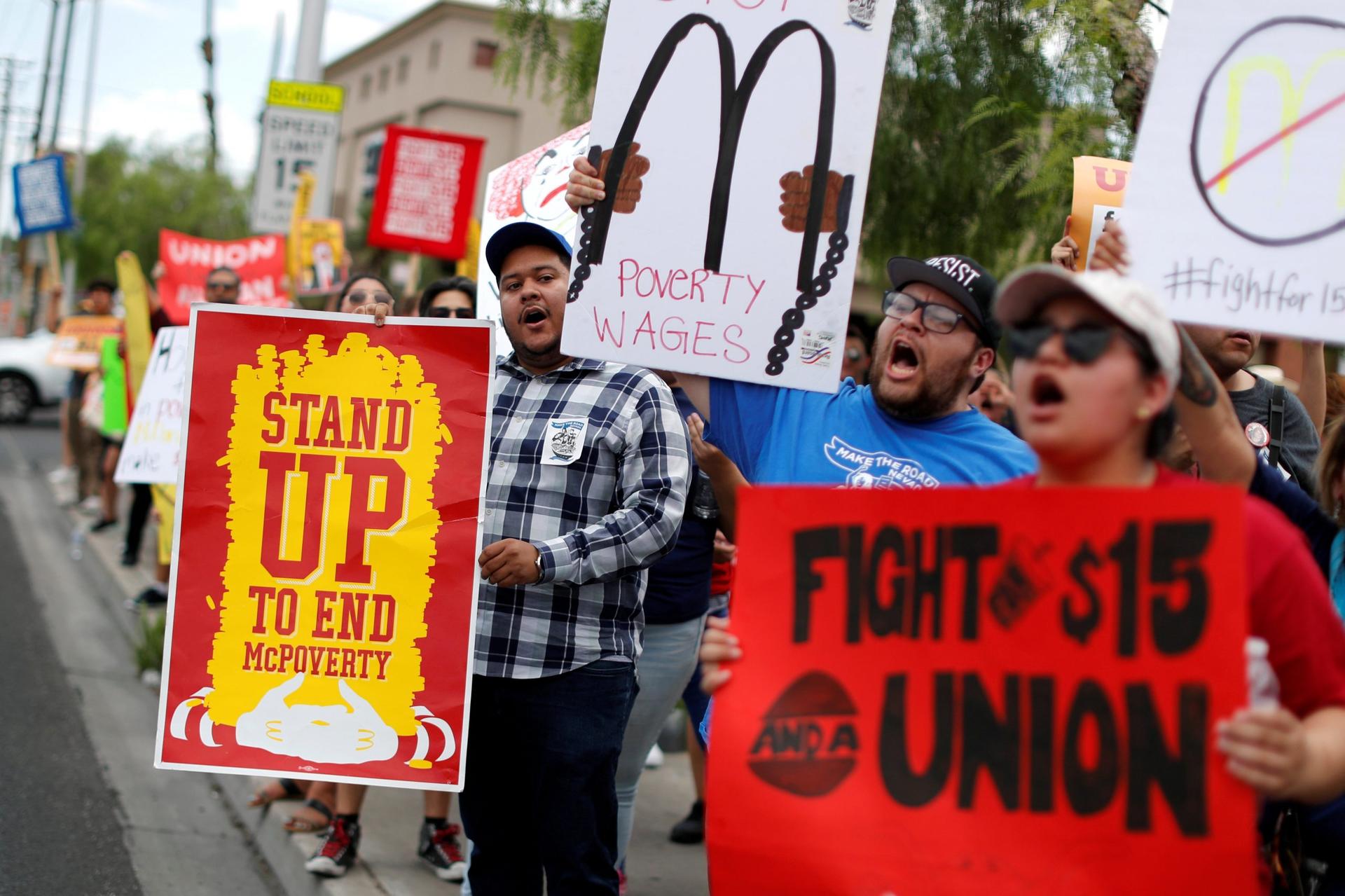WASHINGTON, D.C. — A Catholic labor advocate welcomed President Joe Biden’s executive order to raise the minimum wage paid by federal contractors to $15 an hour.
Clayton Sinyai, executive director of the Catholic Labor Network, said the higher hourly rate would benefit workers employed by government contractors who are struggling to support their families at the current minimum wage of $10.95 an hour.
“Fifteen dollars an hour is $30,000 a year. That’s hardly a princely sum. But it’s a lot closer to a living wage,” Sinyai told Catholic News Service.
“The government is ordered to serve the common good and not to make profits and that includes being a model employer and asking that those who are benefiting from taxpayer contracts pay a just wage to their employees,” he said.
Signed April 27, the higher wage is expected to take effect next year for hundreds of thousands of workers, the White House said.
Sinyai expressed hope that the new wage would spur more state and local governments and private companies to follow suit and raise the hourly pay of their employees.
“None of us are entitled to goods and services at a price that requires the workers involved to live in poverty,” Sinyai said.
When Biden signed the order, he posted on Twitter: “I believe no one should work full time and still live in poverty.”
The current $10.95 an hour wage paid by contractors was put in place under an 2014 order by President Barack Obama. The federal minimum wage remains at $7.25 an hour and has not been raised in a decade.
Several cities have minimum wages of at least $15 an hour and several states have enacted laws that will raise their minimum wage to that level or higher in the coming years.
The House or Representatives in 2019 passed a bill to raise the federal minimum wage to $15 an hour by 2025, but congressional observers have said the measure faces long odds in the Senate. Biden included the wage rate in the $1.9 trillion pandemic relief package, but the Senate parliamentarian ruled it could not be part of the legislation and it was removed.
Biden mentioned this issue in his April 28 address to Congress where he said: “By the way, while you’re thinking about sending things to my desk, let’s raise the minimum wage to $15.”
“No one — no one working 40 hours a week — no one working 40 hours a week should live below the poverty line,” he added.
The Economic Policy Institute estimates that about 42 percent of the U.S. workforce will be covered by $15 minimum wage laws by 2026.
Biden’s order is the latest in a series of pro-labor actions he has taken during his first 100 days in office.
The higher wage is not expected to take effect until next year after the required rule-making process runs its course.













